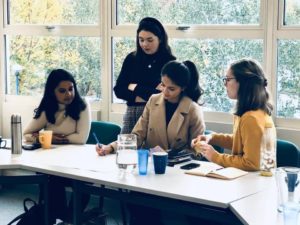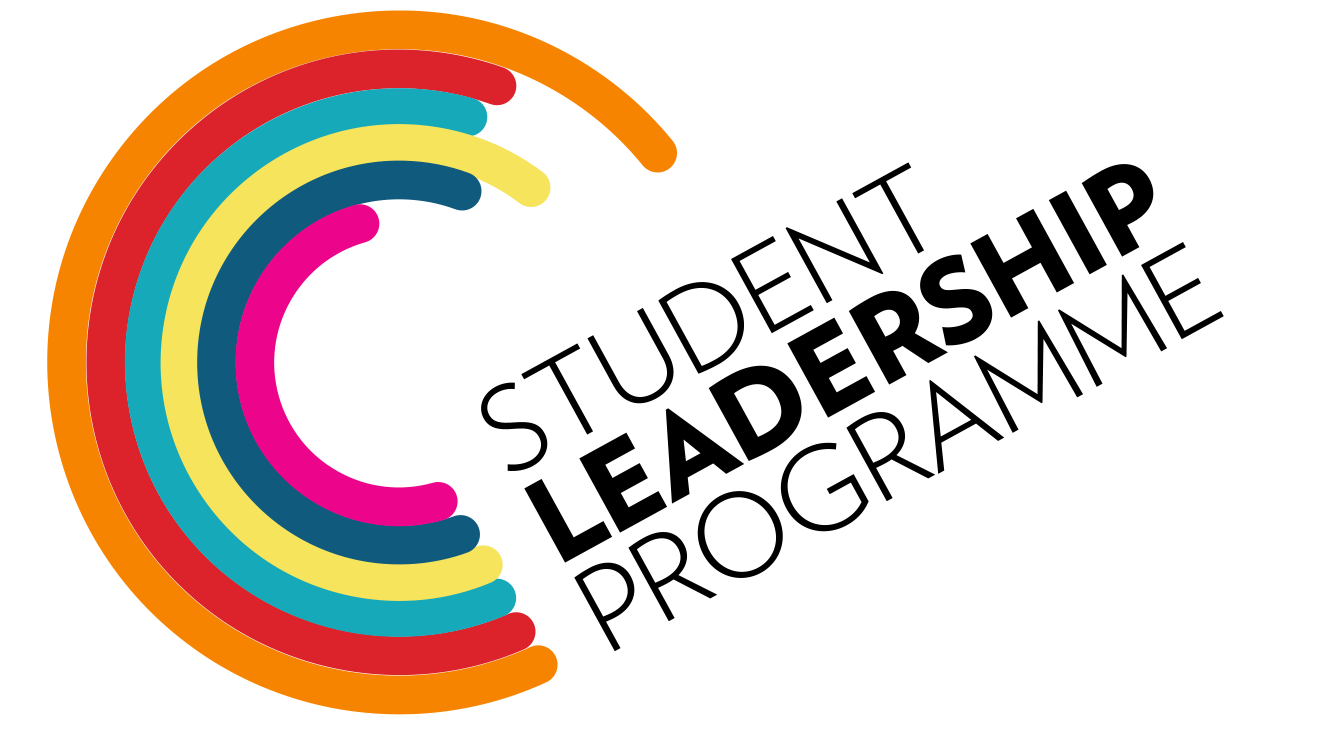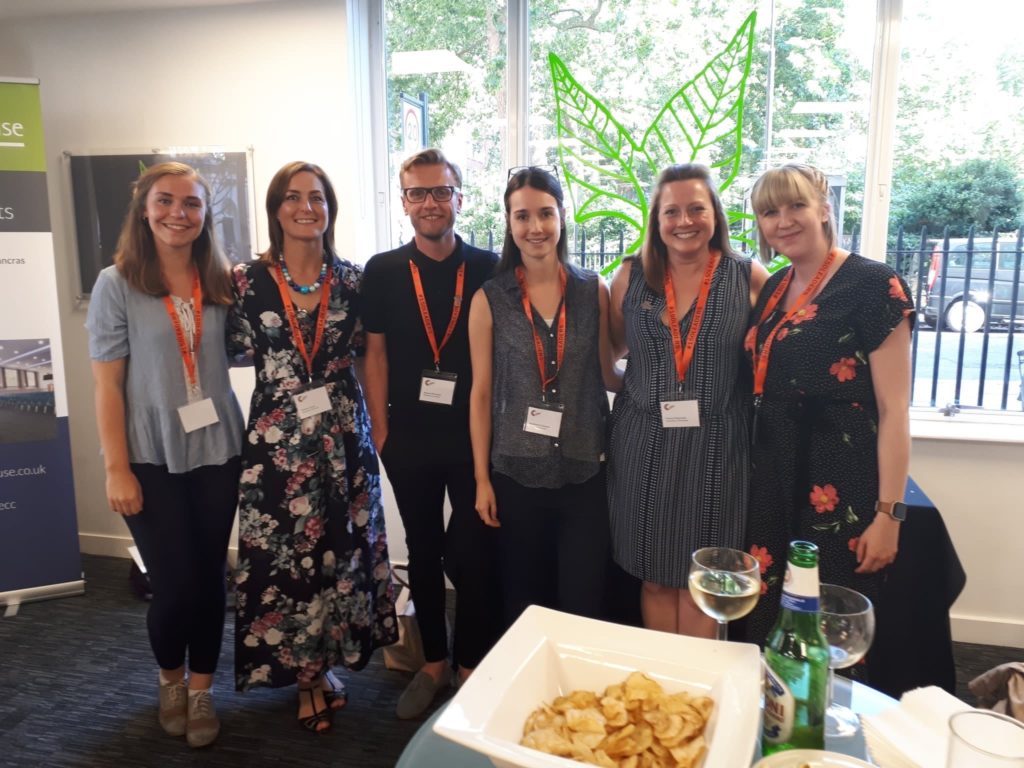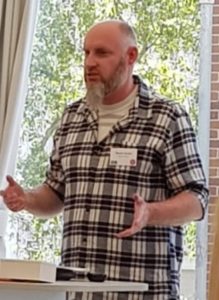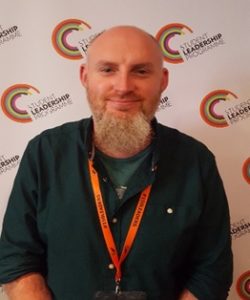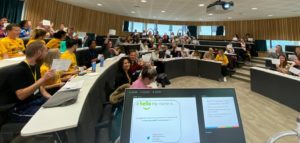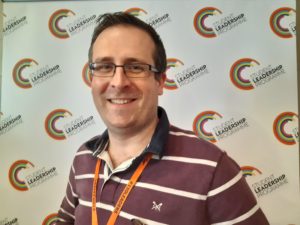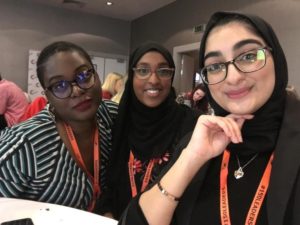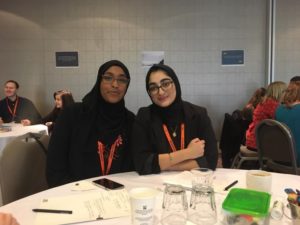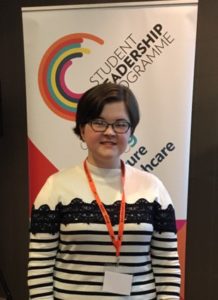By Aalijah Buttimer, Student Adult Nurse, University of Southampton
2020 is a year we will never forget, and the usual pride festivities held around June each year in honour of the 1969 Stonewall Inn riots have been cancelled. I would like to invite you to join me in reflecting on my experiences in higher education and the ways in which we can learn from them to reduce the challenges that LGBT+ students and staff face. At points I refer to Stonewall reports on LGBT+ experience in universities, and BAME LGBT+ experience; links to read these on the Stonewall website are provided at the end.
In 2017, on my first day of my nursing access course, the tutor assigned a controversial statement to each corner of the room and asked people to stand with a statement they agreed with. One corner of the room believed in supporting legalisation of assisted suicide; the opposite believed that schoolboys should not be allowed to wear skirts. Around half of the class stood in this corner and when asked to discuss, shared views such as: “It’s disgusting, and they should do that sort of business in private,” “Then they will be the same as the girls, it’s against nature,” and “I would take my children out of a school that allowed that”. These ideas were not explored or challenged, and I immediately understood that the tutor did not have the awareness or knowledge to support people like me.
Developing a shared learning contract that explicitly discusses respecting BAME, LGBT+ and disabled identity at the beginning of a programme or module is beneficial at all levels of education. Shared learning contracts contribute to a sense of community and empower those in the room to challenge discrimination when they see or experience it. We can also benefit from using similar contracts in student union societies and university accommodation contracts.
In 2018, after already accepting my offer to attend my university, I headed to an open day to familiarise myself with where I would soon be living. At the student union fair, I looked for signs that LGBT people were welcome. Any LGBT person can tell you that we do this subconsciously – we look for LGBT+ symbols and identifiers to assess whether we are safe and welcome. No LGBT+ society, symbols or identifiers were present, which clued me in on what my upcoming university experience would probably be like. I later learned that the lack of LGBT+ presence at open days is because all LGBT representation and support is provided voluntarily by untrained, unpaid students, who cannot attend dozens of open days and promotional activities each year due to the degrees they are also trying to achieve.
Many LGBT+ students at your university are working extremely hard to deliver a range of services for fellow LGBT+ people, including welfare care, social activities, sexual health provision, representation, policy input and more. Their efforts often go unrecognised by the wider university community, and any funding they receive is likely the same or less than a sports society. Similarly, many LGBT+ university staff contribute many hours of uncompensated labour as official or unofficial equality and diversity champions, on top of already demanding workloads. Please be considerate of what you are asking of people who are part of disadvantaged minority groups, and ask what funding is needed to appropriately support the work they do on the university’s behalf to meet their community’s basic needs.
Beginning my degree, I sat and completed forms on my first day, filling in my date of birth and address. When it came to my gender, I asked whether there was any way I could indicate that the gender on my passport, which conflicted with years of testosterone therapy, was not how I identified. I was happy to write the gender on my passport but also wanted to record that I was nonbinary. The staff member shrugged sympathetically and said no.
Do your student and staff records have space for a preferred name and gender identity to be stated? Filling in forms is often one of the first activities that applicants and new starters, student or staff, have to do. Making small adjustments that support LGBT+ people greatly influences our experience from the very start.
The following week I attended uniform fittings. We queued up in a classroom and once at the front of the line, a member of staff decided our size and gender by looking at us and gave us each a uniform to try on. We were pointed to a classroom to change, one for women and one for men. As a nonbinary trans person, changing rooms bring a deep sense of dread and I always avoid them in case someone notices that I’m trans and public embarrassment or physical violence ensues.
I didn’t know it at the time, but there were two other trans students in my cohort. They arranged a meeting with programme staff and explained why this had been an upsetting experience. Following this, the uniform fitting process is 1) less public and 2) self-identifying. Faculties of health can review their uniform fitting process with input from LGBT+ healthcare students to easily prevent unnecessary distress.
These events occurred within a year of each other and don’t explore the serious, traumatic homophobic assault I experienced at a student club in my first week; hearing homophobic and transphobic comments from fellow healthcare students in lectures; being asked to provide a written piece on the university’s LGBT+ inclusivity for a prospectus, without ever seeing any equality and diversity work from the university of any shape or form.
These events also aren’t just my bad luck or my city’s small-town atmosphere. A 2018 Stonewall report on LGBT+ student experience in universities found that 22% of LGB students and 60% of transgender students had received negative comments or behaviour from other students in the year prior to the research. Almost a quarter of BAME LGBT+ students had experienced this from university staff in the year prior, reflecting the significantly increased levels of structural discrimination that BAME LGBT+ people face in comparison to white LGBT+ people.
I can’t finish this piece without recognising the black lives matter movement, which at this moment has erupted globally, protesting the systematic oppression of black people. LGBT+ pride month occurs in June to mark the 1969 Stonewall Inn riots, when predominantly black and Latinx LGBT+ people fought back against police brutality. This week, 51 years later, we saw over 30,000 people march in Los Angeles for All Black Lives Matter, a protest against police brutality and in support of black LGBT+ people. Pride has been conflicted between celebration and protest for a number of years now, as some of us enjoy the privileges of progress more than others. While this blog post has detailed some of my own experiences as a white LGBT+ person, it’s essential to recognise that racism is pervasive within the LGBT+ community, and in daily life BAME LGBT+ people experience much higher rates of homophobia and transphobia than white LGBT+ people. We have much work to do before we can celebrate our collective freedom, and I hope that one day we make enough progress that being LGBT+ at university is a joyful experience for everyone.
Until then, I would encourage you to read Stonewall’s 2018 LGBT in Britain: University Report for guidance on improving university environments for LGBT+ students and LGBT in Britain: Homes and Communities for information on BAME LGBT+ experiences and recommendations on how to reduce racism in LGBT+ communities.
Edit: In the time since I wrote this piece, my university’s school of health sciences has appointed a new chair of their equality and diversity group and put out an open call to students to participate in this work. I am really grateful to see this movement and I hope that this creates a space to explore some of the ways to improve that are discussed above.
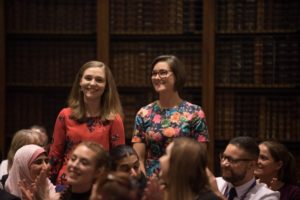 So I applied. The application involved a short video, an essay on my leadership experience to date and an idea for a project. It wasn’t a small undertaking, but I was proud of what I produced. I then had a short interview / chat with the course director, Johann, and was successful. I had some small idea of what the following year would entail, but not wholly…
So I applied. The application involved a short video, an essay on my leadership experience to date and an idea for a project. It wasn’t a small undertaking, but I was proud of what I produced. I then had a short interview / chat with the course director, Johann, and was successful. I had some small idea of what the following year would entail, but not wholly…